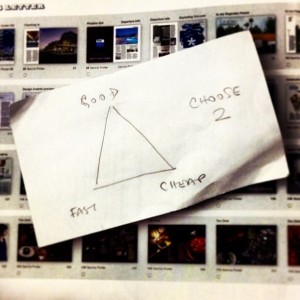It’s story time, my friends! As usual, I’ll midrash-style this little tale, mostly for entertainment purposes so you’ll keep reading and wondering what is next. What does that mean? I may add a few words and phrases for dramatic flare, but the verses you read are the real ones.
If you were raised with any sort of Christian background, you’re probably familiar with Moses leading the Israelites* out of Egypt toward a Promised Land. They crossed the Red Sea and saw the whales in the water while they walked on dry land. Then God showed up by fire at night and a “pillar” by day and just walked them through the desert. What a wonderful story! But have you ever spent much time on the ending of the story? It doesn’t put the Israelite nation in such good light, so it doesn’t get told quite as often.
So they reach the edge of the Land which God has promised. The directions have been that God would go before the Israelites to drive out the people currently living in their land of milk and honey. Before actually doing what God says, they decide to send out a team to find out what is on the other side. Moses says in Deuteronomy 1:23, “the idea seemed good to me; so I selected 12 of you, one man from each tribe.”
Now, if you jump over to the book of Joshua, you get the whole scouting report. Essentially 10 of the 12 taking notes come home with a blank page other than the words “we’re screwed.” The other two, one being Moses’ protege, said, “um, I think we ought to do what God said to do.” However, no one followed those two out of the pep rally – the fighting men sat down and refused to go. The fear of the Israelites is a whole other commentary.
To say that God was slightly pissy is an understatement. Lots of resentment on both sides begins to brew. Some He Said/She Said, a few slammed doors and God declared (Deut. 1:35) “No one from this evil generation shall see the good land I swore to give your ancestors…” (He goes on to exclude Caleb and Joshua, the 2 guys with a positive attitude after the scouting report.) Then he tells them to gather their things, they are all heading back toward the Red Sea.
Much like my own children, the Israelites suddenly muster up some willingness. “We’ll go! We’re sorry! We promise! We’ll do whatever you say!” They gather their weapons thinking they can just go and take the land like they should have the first time. God warns them not too, but they go anyway. Poor choice #642 of the day leads to more dead Israelites.
So they head out toward the Red Sea, wandering around the hill country. Finally God starts to give some direction (2:4-5): “You are about to pass through the territory of your relatives the descendants of Esau, who live in Seir. They will be afraid of you, but be very careful. Do not provoke them to war, for I will not give you any of their land… I have given Esau the hill country of Seir as his own.”
Then they come up to another section of countryside. God says, “Do not harass the Moabites or provoke them to war, for I will not give you any part of their land. I have given Ar to the descendants of Lot as a possession.” We learn that the Emites used to live there, hefty people that were driven from the land by the Moabites.
Just like the Horites, who used to live in Seir, but Esau’s clan drove them out. Then a funny little quote in 2:12 – “[the descendants of Esau] destroyed the Horites from before them and settled in their place, just as Israel did in the land the Lord gave them as their possession.”
Huh. How about that. But wait, there’s more!
So God then tells the Israelites to take their tour across the valley. By this point the entire generation of fighting men had died. They go to a part of Moab at Ar. (Ar. I know. The creativity of town naming must be exhausting. I would imagine this would be a land of pirates, except that they’re in the middle of the desert.)
God begins to sound like a broken record. “When you come to the Ammonites, do not harass them or provoke them to war, for I will not give you possession of any land belonging to the Ammonites. I have given it as a possession to the decedents of Lot**.” Come to find out, The Rephaites used to live there, but “the Lord destroyed them from before the Ammonites, who drove them out and settled in their place.” (2:21)
Three different lands on this little Hall of Fame tour. All three lands have people living in them, people who have not always been there. God promised each of these peoples a land and then gave it to them. Now, that sounds familiar.
(Also – and we can’t spend too much time on this – we can note that many of these are enemies of the Israelites. Huh. How about that. God will bless people whom we do not like and are not like. Noted, and time to move on.)
This ain’t God’s first rodeo. He has done this before. Whatever “this” is in our lives, God has been there, done that. He has references. Call his people, they will tell you he can be trusted, and He does what he says He will do. You can even call people not like you, people you don’t like, and they will tell you what you need to hear.
God clearly knows my and your propensity to try to capitalize on other people’s promises. Every time they walked through another museum of God’s work, he warned them, “don’t even think about trying to take this. It’s not yours. It’s theirs.” God shows us his resume not so we can have what others have, but so we will trust as others have trusted. Their promises are not your promises. Stop trying to make yours what God promised to someone else.
God gives another chance. It takes 40 years waiting for the Sad Sally army men to die, but eventually God takes them back. Then Moses sits down to pen another 32 chapters of instructions in Deuteronomy before giving them a green light. And dying. Which I suppose is probably why Deuteronomy is such a book – if you knew you were going to die at the end, wouldn’t you keep coming up with mundane instructions?
So here we go, my friends. If God has promised it, you can believe it. Ask around. Look around. The evidence is probably in the neighbor’s yard.
*Chrome tells me that the plural of Israelite does not exist. How can this be? I just did the worst thing and simply added it to the dictionary instead of looking up proper usage. Sorry-not-sorry.
**Yes, Lot has a lot of descendants.

